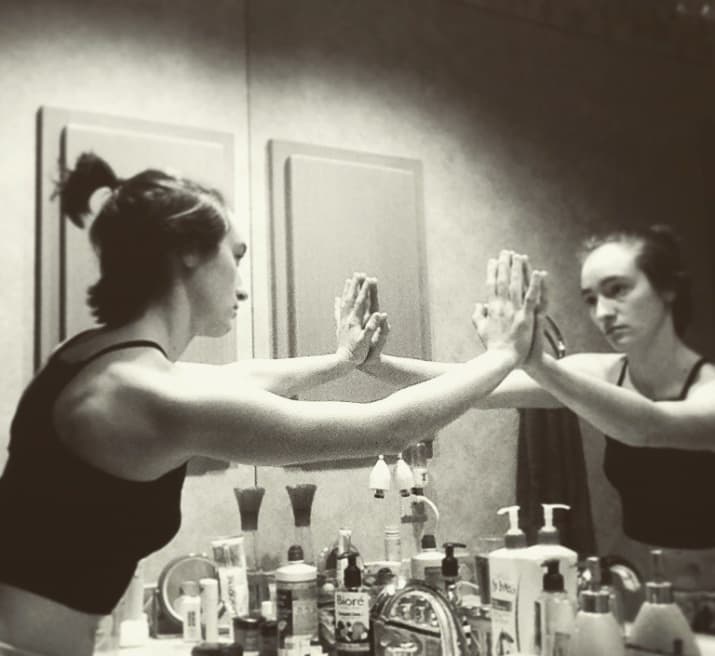10 Coping Strategies That Empower Me as a Sexual Assault Survivor
I am no doctor — just a young woman that has experienced multiple sexual assaults and today considers herself to be self-confident, empowered and balanced. Finding my inner strength after each assault was incredibly challenging. Over the past few months, with the rise of the #MeToo movement and learning about many of my friends’ own sexual assault experiences, I decided it was past time to share my post-assault coping mechanisms. My purpose is to empower victims of sexual assault.
Here are my coping mechanisms:
1. Write
— literally anything. Whatever thoughts come to mind, write them down. Do not hold back thoughts due to self-judgement; no one else needs to read them. Do not get frustrated for not being able to pin down what your emotions are or where they stem from. It is OK to feel every emotion at once and not attach a reason to each one.
2. Smash pumpkins/squash with a baseball bat.
You heard me correctly. One of the most therapeutic things I did after my first major assault was drive out to an empty field with ten acorn squash and a baseball bat. It really helps with pent-up anger.
3. Dive into something you are extremely passionate about.
Hiking, art, running, rock climbing, underwater basket weaving — whatever you want. I turn to music. I am a violinist and channel all my emotions into my solo, chamber and orchestral music. One day when I was feeling particularly angry, I broke my E string playing Shostakovich’s 8th String Quartet. Ultimately, your work will be even more powerful because of it, and it will give you something to feel proud of.
4. Talk with real people.
Do not just text. Find your closest friends, your family, a therapist or a support group. If you confide in anyone and they reject you, they were probably not good friends to begin with. A lot of the time, you will learn that many people have had similar experiences or their own events that they never told you about, in which case they may be able to add more insight. Just know that healing takes a long time, but finding the right people to surround yourself with can greatly reduce that time.
5. Allow yourself to breakdown.
This one is huge, especially since many of us are raised to bottle in our feelings and not cry. Do not hold in those bubbling emotions you cannot name. There are a lot of them and they should be expressed. Trauma can cause high stress, and crying is often a natural way to release that stress.
6. Go to the gym/do yoga.
Going to the gym not only got me out of my head, but it also gave me physical strength and the ability to feel great about my body, helping me repair my damaged self-esteem. Today, I am able to put my energy and emotion into a physical motion instead of bottling it up. Yoga is similar to going to the gym, but is often more meditative and can help regain inner and outer beauty of oneself.
7. Tell yourself it was not your fault, or write it to yourself, or both.
Over and over and over until you believe it, even if you do not initially. Even better, have your friends tell you over and over that it was not your fault. I did a combination of all three, and one mental breakdown later I finally trust that it was not my fault. Again, it takes time.

8. Tell someone else your inner monologue.
The biggest battle in recovery is often battling your own mind. Telling a close friend exactly what you are thinking about yourself and getting their input can really put things in to perspective and help you balance your thoughts.
9. Find ways to laugh.
I know there are days where it seems impossible, but laughter can counteract negative feelings, especially anger and fear. Being with friends, going to improv shows, playing games — whatever it takes, find ways to laugh.
10. Report your assault to the proper authorities.
This can take a huge load off your chest, and is an active step toward making sure your assailant does not do it again. You do not have to press charges, but at least put that person on their radar in case they do happen to do it again.
To each and every woman, man, child and gender-nonconforming person that has ever been sexually assaulted, I am so sorry this happened to you. It was not your fault. This world needs you now, more than ever, to find your inner strength. This is an issue that needs to be tackled from two sides — education and prevention —and victims should feel empowered. The stronger we become individually, the more we can help one another and pass that strength along to others who may need it.
This piece was originally published on BuzzFeed Community.
If you or a loved one is affected by sexual abuse or assault and need help, call the National Sexual Assault Telephone Hotline at 1-800-656-4673 to be connected with a trained staff member from a sexual assault service provider in your area.
We want to hear your story. Become a Mighty contributor here.
Getty image via Eder Oliveira

